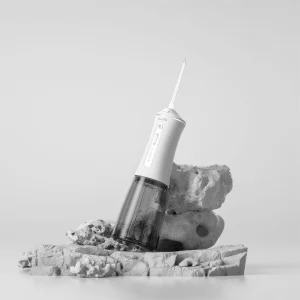Oral irrigators are increasingly favored for their ability to clean hard-to-reach areas between teeth and along the gum line. However, one common issue reported by users is that the oral irrigator makes abnormal noise after being used for a while.This article explores the reasons why oral irrigators make abnormal noise, and how professional oral irrigator manufacturing can address these issues to ensure long-term device stability and user satisfaction.
Water Pump Wear and Tear: The Most Common Cause
At the heart of every oral irrigator is a high-frequency pump that generates the water pressure needed for cleaning. Over time, this pump can degrade due to:
Continuous usage without proper cleaning
Water residue causing internal rust or mineral buildup
Mechanical fatigue from cheap or sub-standard components
This deterioration leads to louder or irregular sounds during operation — the most frequent reason an oral irrigator makes abnormal noise.
Air Blockage or Water Pathway Obstruction
Another common cause of abnormal sound is an obstruction in the water flow system. Blockages caused by:
Hard water scaling inside tubes
Debris or foreign particles in the reservoir
Air bubbles trapped in the water line
These problems can create sputtering, vibrating, or buzzing sounds. Regular cleaning and proper usage are key, but oral irrigator manufacturing quality also plays a critical role in minimizing these risks.
Loose Internal Components or Housing Structure Issues
If the device begins making rattling or vibrating sounds, the issue may lie in its structural integrity. Over time:
Screws or internal mounts may loosen
Plastic housing might slightly deform due to heat or pressure
Poor design can amplify internal motor vibrations
In well-designed oral irrigator manufacturing, reinforced component assembly and housing insulation are used to prevent such issues and absorb excess vibration.
Motor Misalignment or Electrical Faults
In some cases, the noise may come from the motor itself, especially if it begins to:
Shift out of alignment with the gear system
Experience voltage fluctuations
Overheat due to continuous or incorrect usage
High-quality motors and precise assembly techniques in oral irrigator manufacturing can prevent these failures, especially in long-term or high-frequency usage scenarios.
How Manufacturers Can Reduce Noise Issues in the Long Term
Professional manufacturers take a number of steps to ensure product stability and minimize abnormal noise development over time:
Use of high-performance, low-noise motors and pumps
Internal vibration-damping materials
Stringent noise-level testing during quality control
Optimized internal layout for airflow and pressure balance
Easy-maintenance designs to help users prevent buildup and wear
These design and engineering decisions can make a significant difference in product performance and user satisfaction.
A Matter of Quality and Maintenance
The reasons why oral irrigators make abnormal noise are typically linked to wear, maintenance issues, or poor product design. While some noise may be unavoidable after years of use, a well-designed product with quality components will maintain stable, quiet operation much longer.
As a professional oral irrigator manufacturing partner, we offer customized OEM/ODM solutions with advanced noise-control designs and quality assurance protocols built in.
�� Contact us today to learn more about how we can support your oral care brand with high-quality, low-noise water flosser solutions.https://www.powsmart.com/contact-us/


